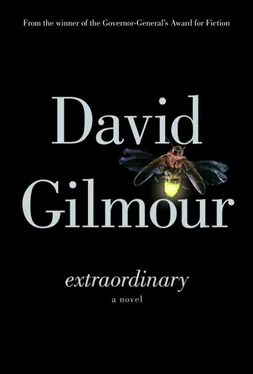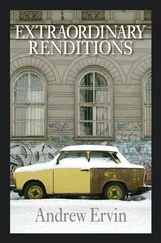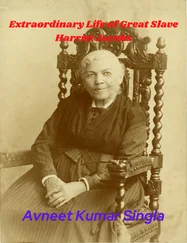David Gilmour - Extraordinary
Здесь есть возможность читать онлайн «David Gilmour - Extraordinary» весь текст электронной книги совершенно бесплатно (целиком полную версию без сокращений). В некоторых случаях можно слушать аудио, скачать через торрент в формате fb2 и присутствует краткое содержание. Город: Toronto, Год выпуска: 2013, ISBN: 2013, Издательство: Patrick Crean Editions, Жанр: Современная проза, на английском языке. Описание произведения, (предисловие) а так же отзывы посетителей доступны на портале библиотеки ЛибКат.
- Название:Extraordinary
- Автор:
- Издательство:Patrick Crean Editions
- Жанр:
- Год:2013
- Город:Toronto
- ISBN:978-1-44342-372-4
- Рейтинг книги:4 / 5. Голосов: 1
-
Избранное:Добавить в избранное
- Отзывы:
-
Ваша оценка:
- 80
- 1
- 2
- 3
- 4
- 5
Extraordinary: краткое содержание, описание и аннотация
Предлагаем к чтению аннотацию, описание, краткое содержание или предисловие (зависит от того, что написал сам автор книги «Extraordinary»). Если вы не нашли необходимую информацию о книге — напишите в комментариях, мы постараемся отыскать её.
Extraordinary
Extraordinary — читать онлайн бесплатно полную книгу (весь текст) целиком
Ниже представлен текст книги, разбитый по страницам. Система сохранения места последней прочитанной страницы, позволяет с удобством читать онлайн бесплатно книгу «Extraordinary», без необходимости каждый раз заново искать на чём Вы остановились. Поставьте закладку, и сможете в любой момент перейти на страницу, на которой закончили чтение.
Интервал:
Закладка:
But while I waited for her to emerge, I found myself pondering those words, “All this has become less and less manageable.” It was the second time she’d used those same words, and I found myself remembering an episode that had happened only a few months earlier. I had dropped by her apartment unexpectedly late one afternoon, the winter night already collecting like soot between the neighbouring high-rises and the discarded Christmas trees up and down the length of the street. It was the final hours of a sullen January day in Toronto, when even the cheeriest souls find themselves fingering a length of rope and looking appreciatively upwards at the available roof beams. (I’m phrase-making here, but you know what I mean.)
I buzzed her number. The glass door clicked open. I went up the elevator and down the hallway, which smelt, as always, of fragrant spices and large families. Behind one door, a shrill woman’s voice chanted to a stringed instrument as though she were in mourning for the recently dead. Behind other doors, animated voices rose and fell.
Sally was wearing that green dress; her eyes carefully made up, cheeks lightly rouged, modest lipstick. She stood in the centre of the room, wobbling slightly on her crutches. It was clear that she was going out.
“I’m going to see—” She named a Christian revivalist, a perpetually tanned preacher whose unconvincing heterosexuality and next-world promises I had watched off and on for years on television on those afternoons when a nicotine-and-bourbon hangover made an excursion outdoors something you put off until nightfall.
It puzzled me, her going to a revival meeting. What on earth was she thinking? Or was she thinking? Sally was a rigorously intelligent woman, a bemused and articulate observer of the world, and for her to embrace the word of a bullshitter in an ice cream suit seemed tragic.
What was she after, taking an expensive taxi downtown to Maple Leaf Gardens, sitting in the front row in a gleaming line of wheelchairs and crutches, paralyzed limbs and distorted smiles? Did it mean that my sister had arrived at such a point of desperation, such a degree of unhappiness that, like Pascal’s gamble about the existence of God, she had put her common sense on hold to embrace the possibility that this mincing Southern millionaire could lay his hands upon her useless legs and make them work?
I didn’t ask. I was afraid, I suppose, of the answer. (How ungenerous I was in those days.) I simply took her down in the elevator and put her in the back of a taxi and waved as the red tail lights disappeared in the early evening darkness.
Over the months, my thoughts sometimes returned to that revival meeting, to her standing in the middle of the room in her green dress and glancing away, ever so slightly, when she told me where she was going. I never thought of it, never, without a kind of sinking feeling. But recently I’ve undergone a change of mind. Of heart, perhaps. I now see that evening, her descent into the throng of wounded and broken and famished souls, as something different, as something deeply poignant: her gameness, her willingness to try, even with a smile, anything , for a last kick at everyday happiness. When I think of my cherished Sally, I always come back to this word: heroic.
(Do the dead forgive us, I wonder?)
The toilet flushed; the bathroom door opened. Sally emerged. She had clearly been thinking about something in there. She said, “Do you remember that television show Chloe worked on?”
“The imitation American police drama.”
“Yes, that’s the one.”
“Sure, I remember. Chloe thought it might be a way into the world of scriptwriting. ‘Remunerative but sterile,’ I told her that.”
“But it looked so promising there for a while. One minute she was bouncy, the next minute she was talking about leaving town.”
“You don’t know about this?”
“Don’t be coy. Tell me.”
“Well,” I said, a little archly, “I’ll put it this way: instead of writing dialogue like ‘Step away from the vehicle’ or ‘So what did the lab say?’ she ended up in bed with the director. He was married, naturally, a strutting little wizard who could have been a Martin Scorsese or a Tarantino—he had a terrific eye—but he simply couldn’t control his appetites for booze and cocaine and pretty assistants with clipboards, and ended up a big-shot director in the wastelands of Canadian dramatic television. And that is a tragedy. Jumping into bed with him wasn’t.”
“You know him?” she said.
“Casually. But I like him. He’s a mess, but a gifted mess. Anyway, what Chloe misunderstood from the outset was that she wasn’t in university anymore, that in the grown-up world, when you sleep with a woman’s husband, particularly a woman who has just had a baby , the consequences are—well—different. This wasn’t a replay of Miranda and the trombonist. A few weeks into the first season, the director’s wife got wind of things. She turned up at Chloe’s apartment. She put a Japanese carving knife to her own throat and said that if she, Chloe, didn’t stop fucking her husband, she (the wife) would slit herself from ear to ear.
“The drama played itself out over the next few months: bursts of hysteria, sulks, alcoholic confessions, blistering hangovers and public scenes, until the director did what he was destined to do all along, which was to return, droop-tailed, to his wife and work a solid, if brief, program at the Hillside rehab centre in Georgia. Eight thousand dollars a week. Nevertheless, a month later he was slugging back shot glasses of Russian vodka and got himself arrested for, get this, trying to strangle his wife outside a Yorkville restaurant.
“Never mind what addiction counsellors say, the only way to get over the loss of a cherished lover is to find a body that thrills you as much as the one you’ve lost. I know this from personal experience. (And not just once, either.) But when you’re young, you think getting out of town will do the trick, and that’s what Chloe decided to do. She thought about going to law school, somewhere ‘cool’—Mexico, the Caribbean maybe. She fancied herself a criminal lawyer, getting those Puerto Rican and Jamaican drug dealers a day in the sunshine of level-field jurisprudence. But after spending four or five days in the gallery at the University Avenue courthouse, she came to the conclusion that pretty much everyone down there is guilty. But worse, from her standpoint, was the daily spectacle of the doors of justice spinning like some nightmare fan, coughing out the same burnt-out lawyers and the same felons week in and week out. She said to me on the phone one day, ‘I get the distinct feeling that the best part of being a lawyer is going to law school. After that, it’s strictly downhill.’ My guess is that she was probably right, and I told her so. But considering what I was doing for a living at the time, I’m not so sure it was prudent advice.”
“And that got her to California?”
“Here’s where the story gets good. After the TV show, she pissed around here and there. She wrote half a novel about a young girl who falls in love with a married film director. But the truth is, Chloe never had much affection for her own company, or for sitting in a room with her own shortcomings (who does?), so she gave it up. For a few months she taught English to Cambodian refugees in Vancouver, then did a night shift on a suicide hotline. Then worked for an essay writing service. Then painted sets for the low-budget horror film Santa Claws. Nothing quite worked. She phoned me one night, she was a bit drunk, said she was on her way back to Toronto, that she wanted to help the ‘little brown babies in India.’ She meant it, too. But she never went.”
Читать дальшеИнтервал:
Закладка:
Похожие книги на «Extraordinary»
Представляем Вашему вниманию похожие книги на «Extraordinary» списком для выбора. Мы отобрали схожую по названию и смыслу литературу в надежде предоставить читателям больше вариантов отыскать новые, интересные, ещё непрочитанные произведения.
Обсуждение, отзывы о книге «Extraordinary» и просто собственные мнения читателей. Оставьте ваши комментарии, напишите, что Вы думаете о произведении, его смысле или главных героях. Укажите что конкретно понравилось, а что нет, и почему Вы так считаете.












